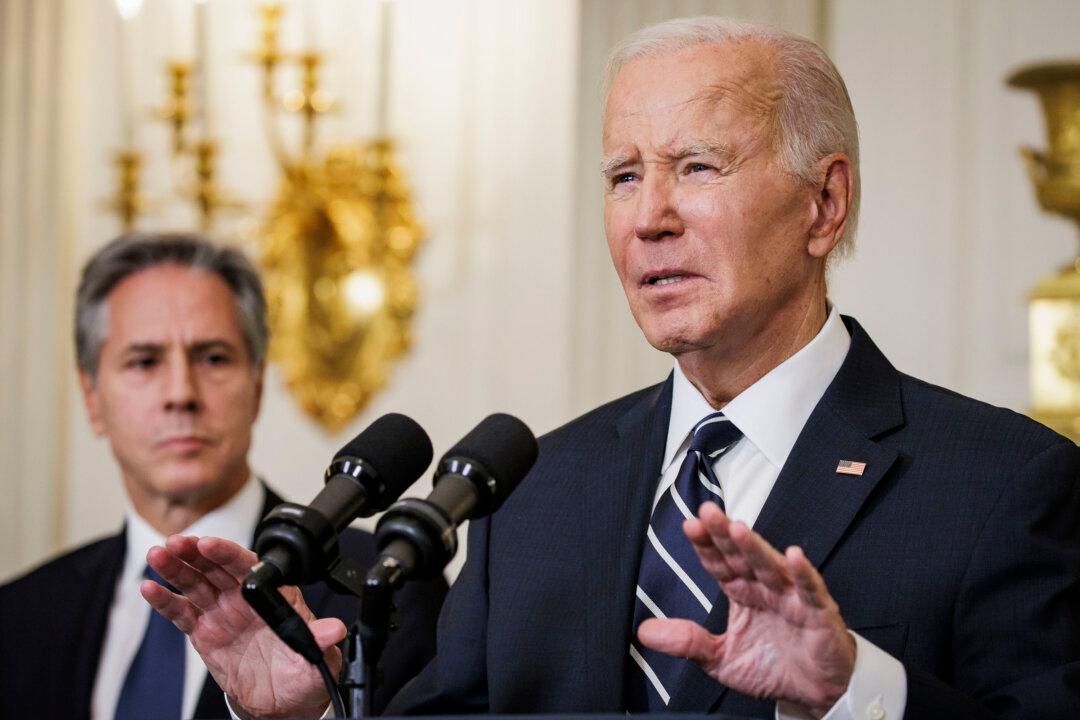President Joe Biden will veto a standalone aid package for Israel backed by Republicans and set to be voted on by House lawmakers this week, the White House has announced.
In a Jan. 5 statement, the White House Office of Management and Budget (OMB) branded the funding measure that has garnered wide support from GOP lawmakers just “another cynical political maneuver” aimed at weakening the bipartisan Senate national security package.




